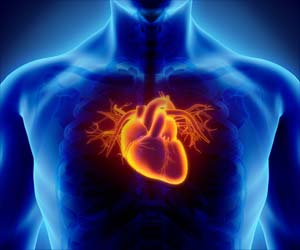Eating tofu and foods that contain higher amounts of isoflavones is linked to lower risk of heart disease, especially for younger women and postmenopausal women not taking hormones.

‘Consuming tofu, which is high in isoflavones, more than once a week, was linked to a 18 percent lower risk of heart disease.’
Read More..




The favorable association with eating tofu regularly was found primarily in young women before menopause or postmenopausal women who were not taking hormones. Read More..
"Despite these findings, I don’t think tofu is by any means a magic bullet," said lead study author Qi Sun, M.D., Sc.D., a researcher at Harvard’s T.H. Chan School of Public Health in Boston. "Overall diet quality is still critical to consider, and tofu can be a very healthy component."
Sun noted that populations that traditionally consume isoflavone-rich diets, including tofu, such as in China and Japan, have lower heart disease risk compared to populations that follow a largely meat-rich and vegetable-poor diet. However, the potential benefits of tofu and isoflavones as they relate to heart disease needs more research.
Tofu, which is soybean curd, and whole soybeans such as edamame are rich sources of isoflavones. Chickpeas, fava beans, pistachios, peanuts, and other fruits and nuts are also high in isoflavones. Soymilk, on the other hand, tends to be highly processed and is often sweetened with sugar, Sun noted. This study found no significant association between soymilk consumption and lower heart disease risk.
"Other human trials and animal studies of isoflavones, tofu, and cardiovascular risk markers have also indicated positive effects, so people with an elevated risk of developing heart disease should evaluate their diets," he said. "If their diet is packed with unhealthy foods, such as red meat, sugary beverages, and refined carbohydrates, they should switch to healthier alternatives. Tofu and other isoflavone-rich, plant-based foods are excellent protein sources and alternatives to animal proteins."
Advertisement
A total of 8,359 cases of heart disease were identified during 4,826,122 person-years of follow-up, which is the total number of years that study participants were free of heart disease and helps to measure how fast it occurs in a population.
Advertisement
In 2000, the U.S. Food and Drug Administration approved health claims that soy edibles protect against cardiovascular disease. However, since then, clinical trials and epidemiological studies have been inconclusive, and the agency is reconsidering its now twenty-year-old decision. The American Heart Association’s 2006 Diet and Lifestyle Recommendations and a 2006 science advisory on soy protein, isoflavones, and cardiovascular health.
Found minimal evidence that isoflavones convey any cardiovascular benefits and any protections provided by higher soy intake was likely due to higher levels of polyunsaturated fats, fiber, vitamins and minerals, and lower levels of saturated fat.
Source-Eurekalert














